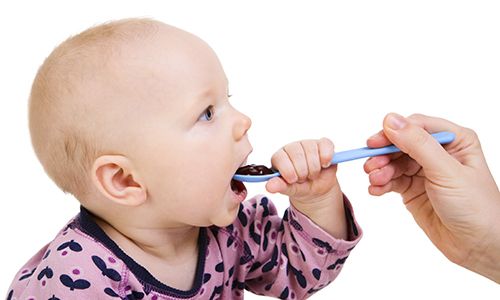The Centre for Food & Allergy Research (CFAR) Australian Infant Feeding Guidelines Summit was hosted by Murdoch Childrens Research Institute (MCRI) on Friday 13th May 2016. The Australasian Society for Clinical Immunology and Allergy (ASCIA) Guidelines provide advice and recommendations relevant to allergy prevention, on breastfeeding, the introduction of solids and supporting mothers and parents.
The Centre for Food & Allergy Research (CFAR) is a national alliance of paediatric food allergy researchers and clinicians from 20 partner institutions across Australia. The Centre is coordinated from MCRI. Their collective research provides evidence to optimise food allergy management and find novel treatments.
The 2016 CFAR Infant Feeding Summit is the second meeting on infant feeding. The initial roundtable was in August 2015 which summarised the research evidence on infant feeding and risk of developing early onset allergic disease (including eczema and food allergy) pertaining to breastfeeding, partially hydrolysed formula, introduction of solid food and allergy screening in high risk infants.
The Summit held on Friday included a broad range of experts including representatives from ASCIA, CFAR, National Allergy Strategy, the Australian Breastfeeding Association, Lactation Consultants Australia/NZ and representatives from clinical, public health and child and maternal health expert bodies and State Departments of Health from around the country.
The Summit meeting on Friday resulted in a consensus agreement to change the Australian infant feeding guidelines across all of the partner participants, to the following recommendations:
- When your infant is ready, at around six months, but not before four months, start to introduce a variety of solid foods, starting with iron rich foods, while continuing breastfeeding.
- All infants should be given allergenic solid foods including peanut butter, cooked egg, dairy and wheat products in the first year of life. This includes infants at high risk of allergy.
- Hydrolysed (partially or extensively) infant formula are not recommended for prevention of allergic disease.
Attendees from the National Health and Medical Research Council agreed that this advice is consistent with the NHMRC Infant Feeding Guidelines, which aim to provide advice on infant feeding for the whole population to achieve a variety of health outcomes.
Allergy specialist, Professor Katie Allen said the result of the Summit was particularly pleasing because it brings together consistent, agreed recommendations across consumer groups, government, healthcare professional groups, industry, and research groups.
“We are pleased we have reached a unanimous consensus amongst the experts advising Australian families on infant feeding,” said Professor Allen. “This will achieve consistent guidelines across both national and state health bodies which will make guidelines as clear and easy as possible for all parents to follow.”
(Source: Murdoch Children’s Research Institute)



 (2 votes, average: 4.00 out of 5)
(2 votes, average: 4.00 out of 5) 






